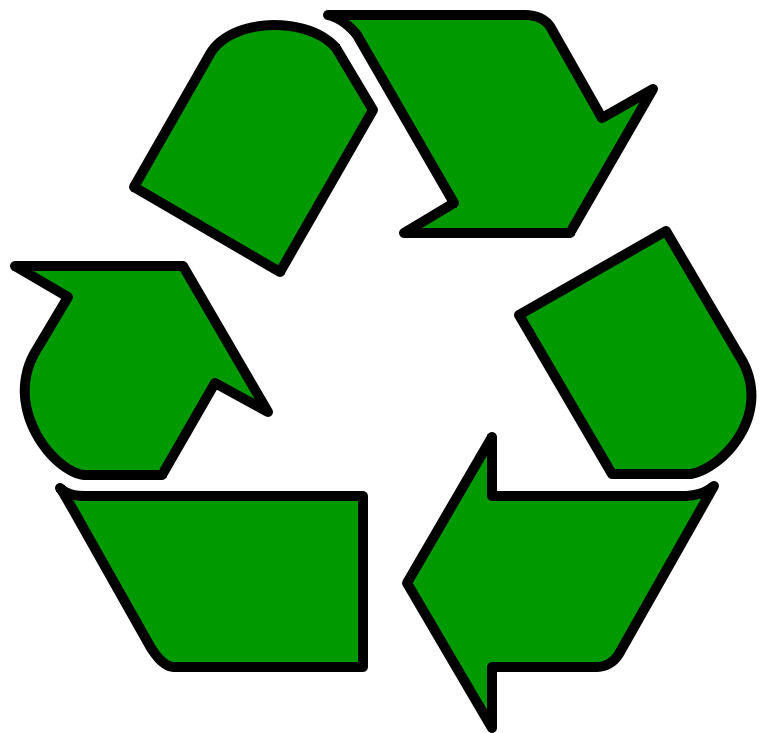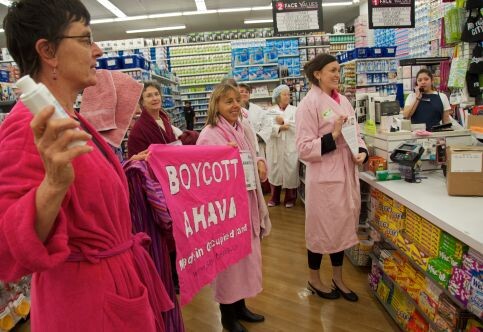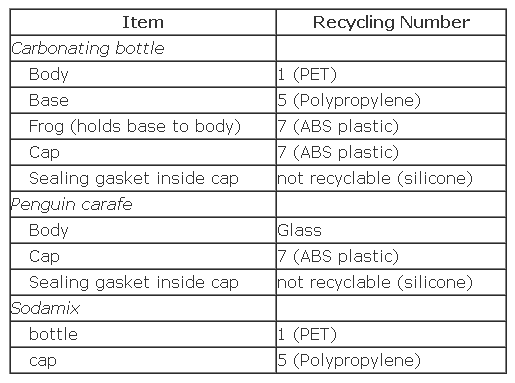Activism and BDS Beat 4 January 2012

It’s difficult to avoid, especially in the frenzy of consumerism and gift-giving which washes over the West at the end of every year: “I meant to boycott that company,” I’ve had friends tell me, “but it was a gift.” Or, “I bought it before I knew.” But like it or not, our unwitting purchases, or receipt thereof as gifts, play a role in preventing Boycott, Divestment, and Sanctions (BDS) campaigns against Israel from achieving their full potential.
Individual responsibility doesn’t end once the money is spent, or once a gift is received. Simply owning a product manufactured by a company complicit in Israeli apartheid sends a message that makes others less willing to take up the boycott. This post explores the proper, evironmentally responsible means for disposing of such products by examining a few representative examples.
Electronics

Activists protest outside Motorola’s office in Brooklyn, New York City. (Bud Korotzer)
Unfortunately, several major manufacturers of consumer electronics, such as Motorola and General Electric, provide weapons and other technologies to the Israeli military. BDS campaigns targetting these companies have led to several divestment victories, but achieving a large scale consumer boycott has remained elusive. You can help change this by divesting yourself of these products, provided you do so properly.
Many companies claim to provide electronics recycling services, but not all of them comply with environmental best practices. In the United States, two bodies exist to provide formal certification to electronics recycling firms which meet their operational criteria. Both bodies, R2 Solutions and e-Stewards, have recently begun to certify facilities in the United Kingdom as well. Each certifier’s website features a global directory of recyclers who have received that body’s certification.
Cosmetics

Boycott activists protest the sale of Ahava products at a US store (Steve Rhodes).
Israeli cosmetics maker AHAVA, whose malevolent mud mongering relies upon minerals excavated from the occupied northern shore of the Dead Sea, has been the target of a highly successful BDS campaign spearheaded by CODEPINK. The campaign has led to major setbacks for the company, including the closure of its flagship London retail store. AHAVA trumpets its “environmental responsiblity” by pointing out that its products are packaged in “recyclable tubes, bottles and jars” and are free of problematic compounds such as SLS, SLES, and paraben, often found in other personal care products.
The best way to dispose of AHAVA products, or those of any other boycottable cosmetics producer, is to begin by checking each container for a stamped Resin Identification Code. Be sure to inspect bottles, jars, and tubes separately from their caps, as they may utilize different types of plastic. Then, codes in hand, consult your local recycling center or authority, which can advise you how to recycle the materials.
As for the contents, experts warn against disposing of cosmetics through sinks or toilets, as water treatment plants are unable to break down all the compounds they may contain. Instead, consolidate all of the contents into a single container, seal it, and dispose of it with your non-recyclable trash. ”However desperate you may be to embrace a sustainable bathroom cabinet”, the Guardian explained in a 2008 article, flushing or pouring cosmetics is simply not a responsible means of disposal.
If you’re still uncomfortable with this idea, some products may be suitable for repurposing, such as mixing compact powder with a small amount of water to create paint. If you’ve got the time (and hopefully also the talent), you can even create your next BDS protest sign out of 100% discarded AHAVA material.
Plastic Goods
Sodastream manufactures home carbonating devices and related products from a plant in the West Bank settlement of Mishor Adumim. Its role in profiting from the occupation, and its efforts to conceal the origin of its products through deliberate mislabeling, have been thoroughly documented by the Israeli organization Who Profits. Sodastream has recently begun an aggressively marketing effort in North America, in which, like Ahava, it has emphasized the environmental impact of its products.
The company’s US website provides the below table as part of a Frequently Asked Questions (FAQ) document, in response to the question, “Are SodaStream’s products recyclable?”. Interesting, the table, and indeed the entire FAQ section, is absent from localized versions of the site in several other markets, including the UK (currently down—see cached version).

By consulting this table, and the regulations of their local recycling center or authority, guilty Sodastream owners can embark on a transformative personal journey to become ex-Sodastream owners.
“But now how will I prepare carbonated beverages in the comfort of my own home?”
It’s actually not that difficult. This Lifehacker post offers instructions on how to make a simplified home carbonator with a few inexpensive parts, and for the more mechanically-inclined, Etsy provides instructions of building a more complicated version that can actually be installed under your sink.
But Wait, There’s More
This post isn’t intended to be comprehensive. It’s actually quite difficult to find information on the proper way to dispose of a two-story bulldozer (though I suggest that if you do, you at least empty the gas tank first). A good general resource, however, is the list of International Universal Recycling Codes on Wikipedia, which includes Resin Identification Codes, as well as codes designated for materials other than plastic. This will at least help you to identify parts of the product which may be recyclable.
Know any good alternatives to the suggestions above? Have ideas on disposing of or repurposing other boycottable products? Please share them in the Comments section below.






Comments
Alternative to Soda Stream
Permalink Felice Gelman replied on
iSi's Twist n Sparkle is made by an Austrian company, costs less than Sodastream, uses generic carbonation capsules, is readily available, and does the job just as well if not better. Don't buy Sodastream. Don't recycle it either. Put it in a box and send it back to the company with a letter explaining that drinking from illegally manufactured products makes you sick.